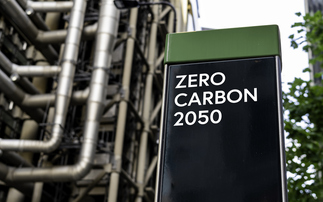The myth that businesses automatically oppose climate action has never looked more tired, and the corporate desire for decarbonisation must be recognised
If, as Woody Allen once joked, 80 per cent of success is showing up, next week's New York Climate Summit will get off to a great start. The meeting may have been dealt a blow by the hugely disappointing...
To continue reading this article...
Join BusinessGreen
In just a few clicks you can start your free BusinessGreen Lite membership for 12 months, providing you access to:
- Three complimentary articles per month covering the latest real-time news, analysis, and opinion from Europe’s leading source of information on the Green economy and business
- Receive important and breaking news stories via our daily news alert
- Our weekly newsletter with the best of the week’s green business news and analysis








